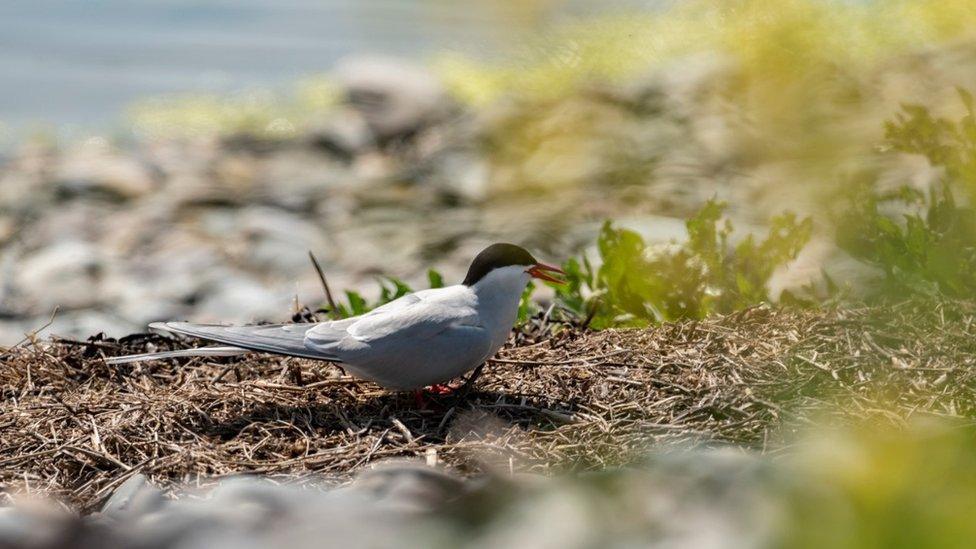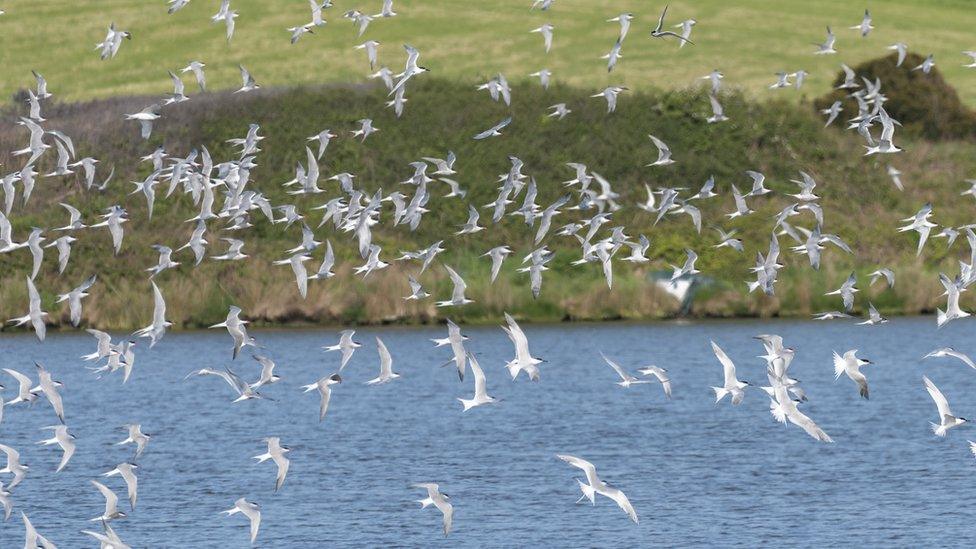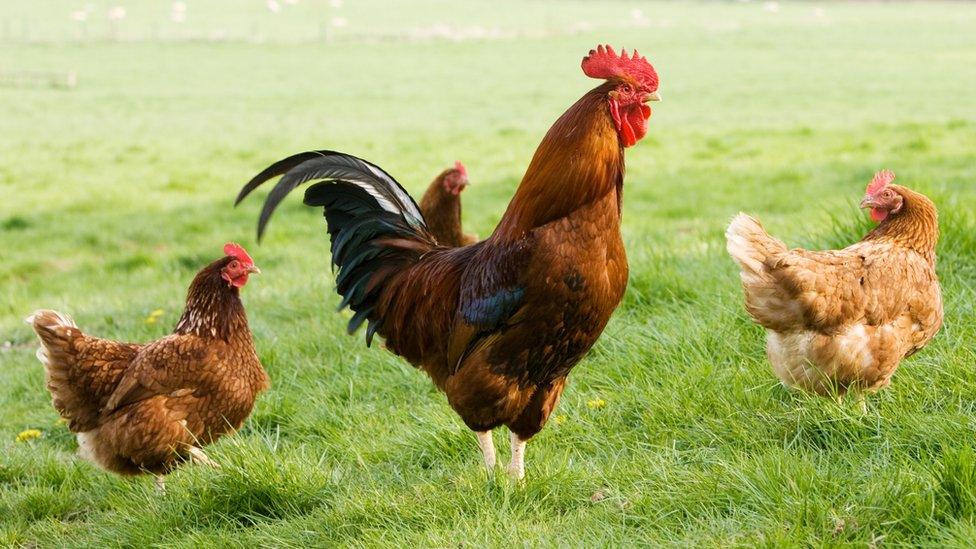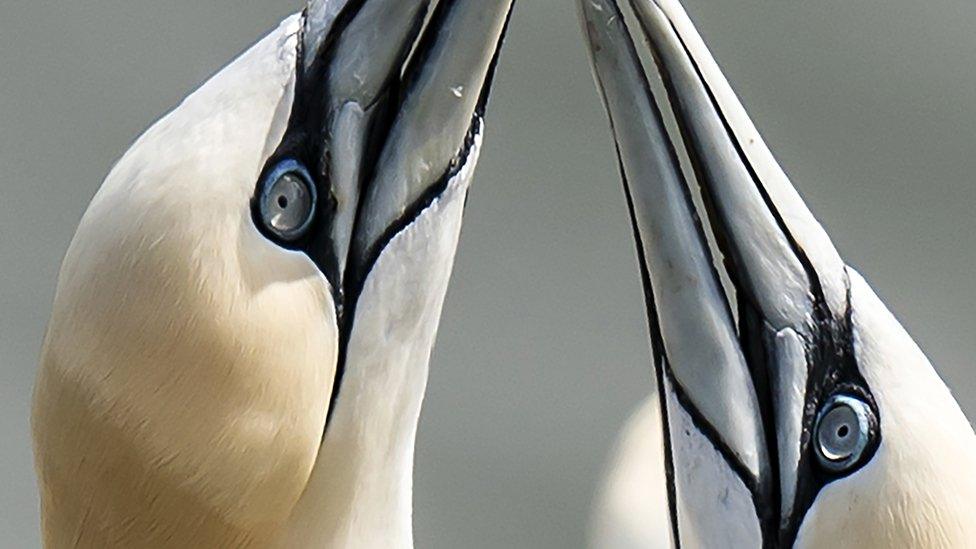Bird flu ravages Anglesey's tern colonies prompting fears for future
- Published

Over half the adult terns on Cemlyn have died from bird flu
Bird flu has ravaged a number of seabird colonies on Anglesey, the National Trust has said.
Cemlyn is made up of two small islands in a lagoon, separated from the sea by a shingle bank. It is home to the only nesting Sandwich tern colony in Wales.
The charity said 55% of breeding Sandwich tern adults, and up to 40% of this year's breeding Arctic tern adults, had died.
The North Wales Wildlife Trust said the situation was "heart-breaking".
The National Trust said more than 1,200 dead birds were collected at Cemlyn during the 2023 breeding season, of which 711 were Sandwich terns - with 77% of them being chicks.
A further 133 were Common terns.
With just 100 breeding pairs of Common terns at the site, wardens calculated that bird flu had wiped out over half the adult population.
'Heart-breaking'
North Wales Wildlife Trust manages Cemlyn nature reserve on behalf of the National Trust, which owns the land.
Ben Stammers, people and wildlife officer for Anglesey, said: "We thought the Cemlyn tern colony had largely escaped bird flu at the start of the season, but then the number of dead birds started increasing.
"Our staff and volunteers come here to help protect these amazing birds, so to find themselves putting on protective suits to collect bodies was heart-breaking."

Ben says terns live for up to 40 years, so the deaths of adults is especially worrying
Mr Stammers said terns could live for up to 40 years.
He said it was "particularly worrying" that adult birds were dying "as they would otherwise be expected to return and raise more young".
"These birds come from South Africa, and choose this part of Wales as the ideal site to nest - their stamina and tenacity is one of the things that make them so amazing," he added.
"It's frustrating and upsetting when we can't protect them from this."
Figures from the National Trust show that Cemlyn, along with the Farne Islands and Long Nanny in Northumberland, have recorded the biggest losses of birds to bird flu.

Cemlyn is home to the largest breeding Sandwich tern colony in Wales
Senior reserves manager for the North Wales Wildlife Trust, Chris Wynne, said the tern species "faced a battle every year".
"Their tremendous, hazardous migrations bring them back to only a small handful of sites on Anglesey where they are vulnerable to predation, weather and human disturbance."
A Welsh government spokesperson said bird flu was having an impact on a number of wild bird colonies "across the UK and Europe".
"We remain committed to the delivery of a Seabird Conservation Strategy for Wales which we will be consulting on next year," the spokesperson added.
"It will identify opportunities to enhance our seabird populations' resilience to pressures such as avian flu, as well as the climate and nature emergencies.
"Our advice to the public is not to touch any sick or dead wild birds, and they should instead report them immediately to DEFRA on the gov.uk website or by calling 03459 33557."
- Published16 September 2022

- Published28 July 2023
